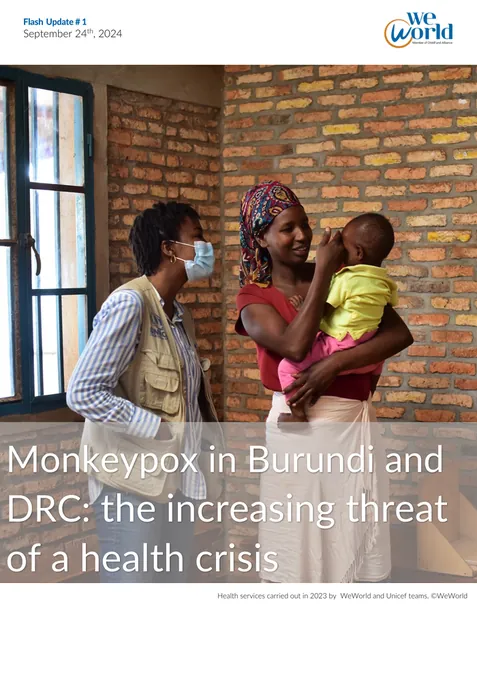
Monkeypox Crisis Escalates in Burundi and DRC: Are We Facing a Catastrophe?
2024-09-25
According to a recent report from the World Health Organization (WHO), monkeypox, or Mpox, is rapidly becoming one of Africa's most pressing health crises. As of January 2024, over 5,700 confirmed cases have emerged across the continent, with Burundi and the Democratic Republic of the Congo (DRC) at the epicenter of this alarming outbreak. The DRC alone accounts for a staggering 90% of Africa's confirmed cases, reporting over 4,901 infections and 629 fatalities since early 2024—a significant increase compared to previous years.
A Tale of Two Outbreaks
The DRC is grappling with two severe waves of Mpox—one originating from traditionally endemic provinces and another aggressively spreading in the eastern regions. The outbreak has raised alarm not just in DRC but has also spread to neighboring countries, including Burundi, which is now experiencing a significant Mpox outbreak of its own. As of September 9, Burundi has reported 392 confirmed cases, yet no deaths have been officially recorded. These statistics are tentative, given that testing only commenced seven weeks ago and limited resources suggest a chilling likelihood of underreporting.
Alarmingly, the rate of Mpox transmission in Burundi outpaces that of the DRC. The outbreak is predominantly concentrated in the North Bujumbura Health District, accounting for nearly 47% of Burundi's total cases. The Kamenge and Kinama zones are particularly hard-hit, documenting 73 and 52 cases, respectively. This situation exemplifies the critical nature of the outbreak, especially as 52.6% of confirmed cases are among children under the age of 15.
Emergency Response in Overdrive
On July 25, 2024, the Burundian Minister of Public Health officially announced the Mpox situation, and by August 6, a comprehensive response plan was validated, estimating a need for over $14 million to effectively manage the outbreak over six months. Just days later, on August 14, the WHO escalated the situation's urgency by declaring it a Public Health Emergency of International Concern.
Despite the dire situation, the Burundian government has only managed to commit roughly $1 million to the response efforts, heavily relying on international aid to bridge the financial gap. Enhanced diagnostic capacities are being developed, including the identification of different Mpox strains like the Clade Ib variant, to better combat the disease.
Challenges Ahead
The response efforts are impeded by critical challenges, including a high positivity rate that reflects widespread transmission. Additionally, the shortage of diagnostic resources and medical supplies exacerbates the situation. Currently, there is a backlog of 55 suspected cases awaiting confirmation, emphasizing the urgent need for streamlined testing processes.
As this health crisis continues to unfold, the effective allocation of resources and robust support from international partners will be pivotal in controlling the outbreak. Urgent action is necessary to avert a potential disaster in Burundi and beyond. The world watches closely, but will we act in time to prevent an uncontrollable crisis? Stay tuned for updates as this situation develops.



 Brasil (PT)
Brasil (PT)
 Canada (EN)
Canada (EN)
 Chile (ES)
Chile (ES)
 España (ES)
España (ES)
 France (FR)
France (FR)
 Hong Kong (EN)
Hong Kong (EN)
 Italia (IT)
Italia (IT)
 日本 (JA)
日本 (JA)
 Magyarország (HU)
Magyarország (HU)
 Norge (NO)
Norge (NO)
 Polska (PL)
Polska (PL)
 Schweiz (DE)
Schweiz (DE)
 Singapore (EN)
Singapore (EN)
 Sverige (SV)
Sverige (SV)
 Suomi (FI)
Suomi (FI)
 Türkiye (TR)
Türkiye (TR)